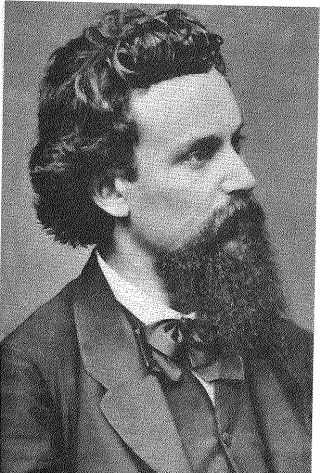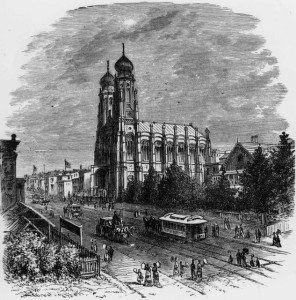Cantor Alexander Weisler
Values Codes H – E – L
Little has been preserved about the life of Cantor Alexander Weisler.
He was a pupil of Cantor Salomon Sulzer, the “father of the modern cantorate” who taught at the Vienna Conservatory in the late 1840s.
This suggests that Alexander Weisler was born in the 1820s, and was probably a native of either Germany or Austria.
San Francisco
In 1864, the board of Congregation Emanu-El in San Francisco, offered Cantor Weisler a one-year contract.
When the year was up, seventeen candidates applied for the cantorial position.
Cantor Weisler was re-hired and remained with the temple for ten years.
He was highly regarded for his efficient leadership, professionalism, and resonant baritone voice.
The richest source of information on Weisler’s persona and musicality is an article from The Daily Alta California describing the dedication ceremony of Emanu-El’s building on Sutter Street:
“Shortly after 4:00 p.m. the organ gave notice that the ceremonies were commencing, and after the voluntary of Professor [Rudolph] Herold, Mr. Wiesler (a pupil of Rev. Dr. Salomon Sulzer of Vienna), the Reader of the Congregation, sang the opening hymn in truly admirable style. In fact, this gentleman’s chanting and reading of the Hebrew are faultless, for he combines with a symphonic baritone voice an excellent musical school[ing], and could [out] rank most of those who aim for musical honors in the worldly professions.”
– The Daily Alta California, March 24, 1866
Congregation Emanu-El regretfully accepted Cantor Alexander Weisler’s resignation in June of 1874.
Max Wolff, a German-born cantor and fellow student of Sulzer, was hired to take his place.
Before returning to Europe, Congregation Emanu-El presented Cantor Weisler with Resolutions expressing well wishes and deep gratitude for services nobly and faithfully performed.
Cantor Max Wolff
Values Codes I – H – E – L
Max Wolff was born in 1839 in Karlsruhe, southwest Germany.
After completing university studies, for which he earned high honors, he enrolled at a the Vienna Conservatory.
There, he studied privately with Cantor Salomon Sulzer, who was the prime figure in the reformation of synagogue music and Cantor of Vienna’s Seitenstettengasse Temple (Stadttempel).
Noted for his rich baritone voice and refined training, Max Wolff was urged to join the opera.
He declined the opportunity out of respect for his father, who considered opera a debased profession.
Wolff instead took the post as cantor of a congregation in Mannheim.
When Cantor Alexander Weisler retired from Congregation Emanu-El of San Francisco in 1874, the congregation formed a search committee that included Henry Seligman, a past president of Emanu-El who was living in Frankfurt am Main, and Isaac Wormser and A. Wasserman, who were both visiting Europe at the time.
The three men urged Cantor Wolff to audition for the Temple Emanu-El position. Wolff was chosen from over a dozen candidates.
Cantor Wolff brought high musical standards to Temple Emanu-El, which became a hallmark of the congregation.
His polished voice, musical taste, and precision in service leading were widely praised.
Cantor Wolff fell terribly ill in 1882.
He passed away in August of 1884, less than a month before the High Holidays.
His aged pulpit partner, Rabbi Elkan Cohn, was unable to conduct the services alone.
In an emergency, the congregation engaged operatic soprano Julie Rosewald as soloist.
She stayed with the congregation for the next ten years, marking the first time a woman served as a cantor in the United States. (Click here for our Julie Rosewald exhibit.)
“The funeral of the late Max Wolff was held from the Temple Emanu-El yesterday afternoon, the celebrants packing the vast edifice to its doors. The deceased was a native of Germany, aged 45 years, and has been Cantor of the congregation Emanu-El since shortly after his arrival in California in 1874. The grief of his family during the services yesterday was very touching, and inspired the congregation to take steps toward sympathy of a substantial character. A fine choir rendered a preliminary dirge, after which a temporary Reader pronounced the impressive Hebrew service for the dead. After a second chant, Dr. Elkan Cohen [sic] preached an eloquent sermon, in which was embodied a glowing eulogy of his deceased assistant.”
— The Daily Alta California, September 2, 1884
Source
- Jacob Voorsanger, The Chronicles of Emanu-El (San Francisco: Spaulding Press, 1900).
Cantor Jonathan Friedmann is curator of this Cantor Max Wolff & Cantor Alexander Weisler exhibit.


